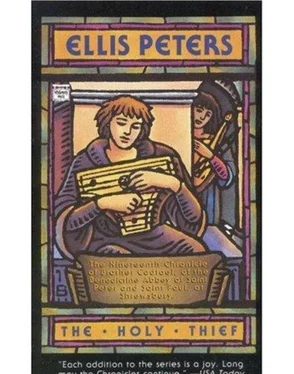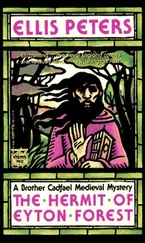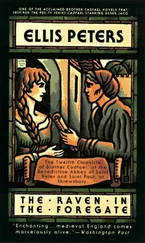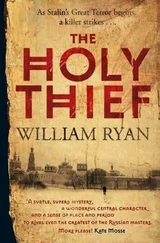“Your nails are too short,” said Donata. “You will flay your finger-ends.”
Her voice could still evoke colours and tones that made the simplest utterance eloquent. What Cadfael heard was a mother, between indulgence and impatience, warning youth of venturing an undertaking possibly painful. No, perhaps not a mother, nor even an elder sister; something more distant than a blood relative with rights, and yet closer. For those contacts free of all duty and responsibility are also free of all restraints, and may approach as rapidly and as close as they will. And she had very little time left, to submit to limitations now. What the boy heard there was no knowing, but he flashed up at her a bright, naked glance, not so much surprised as alerted, and his hands were abruptly still for an instant, and he smiled.
“My finger-ends are leather, see!” He spread his palms, and flexed his long fingers. “I was harper to my father’s lord at the manor of Berton for a year and more before I entered Ramsey. Hush, now, let me try! But it lacks one course, you must hold me excused for the flaws.” There was something of indulgence in his voice, too, a soft amusement, as if to a needlessly solicitous elder who must be reassured of his competence.
He had found the tuning key lying in the chest with the instrument, and he began to test the gut strings and tighten busily at the pegs that anchored them. The singing murmur rose like a chorus of insects in a summer meadow, and Tutilo’s tonsured head stooped over his work in total absorption, while Donata from her pillows watched him from under half-closed eyelids, the more intently because he was now paying no heed to her. Yet some intense intimacy bound them, for as he softened into a passionate private smile over his work, so did she over his concentration and pleasure.
“Wait, one of the strings in this broken course is long enough to serve. Better one than none, though you’ll notice when the tone thins.”
His fingers, if toughened by the harp, were very nimble and neat as he attached the single string and tightened it gingerly. “There! Now!” He passed a light hand over the strings, and produced a shimmering rill of soft notes. “Wire strings would be louder and brighter than gut, but this will do very well.”
And he bent his head over the instrument, and plunged like a hawk stooping, and began to play, flexed fingers dancing. The old soundboard seemed to swell and throb with the tension of notes, too full to find adequate release through the fretted rose in the centre.
Cadfael withdrew his stool a little from the bedside, to have them both in plain view, for they made an interesting study. The boy was undoubtedly hugely gifted. There was something almost alarming in the passion of the assault. It was as if a bird had been muted for a long time, and suddenly found his muffled throat regain its eloquence.
In a little while his first hunger was slaked, and he could soften into moderation, and savour all the more gratefully the sweetness of this indulgence. The sparkling, whirling dance measure, light as thistledown for all its passion, eased into a gentle air, better adapted to an instrument so soft. Even a little melancholy, some kind of virelai, rhythmic and rueful. Where had he learned that? Certainly not at Ramsey; Cadfael doubted if it would have been welcome there.
And the Lady Donata, world-weary and closely acquainted with the ironies of life and death, lay still in her pillows, never taking her eyes from the boy who had forgotten her existence. She was not the audience to which he played, but she was the profound intelligence that heard him. She drew him in with her great bruised eyes, and his music she drank, and it was wine to her thirst. Crossing the half of Europe overland, long ago, Cadfael had seen gentians in the grass of the mountain meadows, bluer than blue, of the same profound beyond-blue of her eyes. The set of her lips, wryly smiling, told a slightly different story. Tutilo was already crystal to her, she knew more of him than he himself knew.
The affectionate, sceptical twist of her mouth vanished when he began to sing. The tune was at once simple and subtle, playing with no more than half a dozen notes, and his voice, pitched higher than in speech, and very soft and suave, had the same qualities, innocent as childhood, piercing as a wholly adult grief. And he was singing not in English, not even in Norman-French as England knew it, but in the langue d’oc Cadfael remembered imperfectly from long ago. Where had this cloister novice heard the melodies of the Provencal troubadours, and learned their songs? In the lord’s hall where he had been a harper? Donata knew no southern French, Cadfael had long forgotten it, but they knew a love song when they heard it. Rueful, unfulfilled, eternally hopeful, an amour de loin, never to come face to face.
The cadence changed in an instant, the secret words passed magically into: “Ave mater salvatoris...” and they were back with the liturgy of Saint Martial before they realized, as Tutilo had realized with the wild perceptions of a fox, that the door of the room had opened. He was taking no chances. The door had actually opened on the harmless person of Sulien Blount, but Sub-Prior Herluin was there at his shoulder, looming like a cloud.
Donata lay smiling, approving the lightning wit that could change course so smoothly, without a break, without a blush. True, Herluin drew his austere brows into a displeased frown at the sight of his novice seated upon the edge of a woman’s bed and plainly singing for her pleasure; but a glance at the woman herself, in her wasted and daunting dignity, disarmed him at once. She came as a shock, all the more because she was not old, but withered in her prime.
Tutilo arose modestly, clasping the psaltery to his breast, and withdrew himself dutifully into a corner of the room, his eyes lowered. When he was not looking at her, Cadfael suspected, he was seeing her all the more clearly.
“Mother,” said Sulien, grave and a little stiff from his small battlefield, “here is Sub-Prior Herluin, sometime my instructor in Ramsey, willing you well and promising you his prayers. In my brother’s name, as I do, make him welcome.”
In the absence of son and daughter-in-law she spoke authoritatively for both. “Father, use our house as your own. Your visit does us honour. It was welcome news to every soul among us that Ramsey is again delivered to the service of God.”
“God has indeed regarded us,” said Herluin, a little cautiously and with less than his usual assurance, for the sight of her had shaken him. “But there is much to be done to restore our dwelling, and we have need of every hand that can be brought to our aid. I had hoped to take your son back with me, but it seems I may no longer call him brother. Nevertheless, be sure both he and you will be in my prayers.”
“I will remember Ramsey,” said Donata, “in mine. But if the house of Blount has denied you a brother, we may still be of help in other ways.”
“We are seeking the charity of all good men,” agreed Herluin fervently, “in whatever form. Our house is destitute, they left us nothing but the fabric of the walls, and that defaced, and stripped of all that could be carted away.”
“I have promised,” said Sulien, “to return to Ramsey and work there with my hands for one month, when the time is right.” He had never rid himself completely of a feeling of guilt for abandoning a vocation he had been foolish and mistaken ever to undertake. He would be glad to pay his ransom with hard labour, and free his conscience before he took a bride. And Pernel Otmere would approve him, and give him leave to go.
Herluin thanked him for the offer, but with no very great enthusiasm, perhaps doubtful how much work Ramsey was likely to get out of this recusant youth.
Читать дальше












